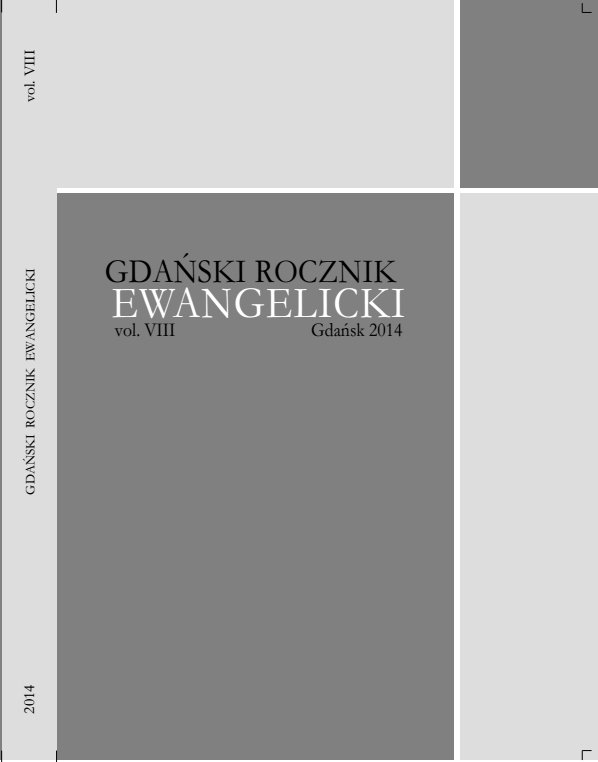Die Bibel als Begründungsanfang der evangelischen Theologie. Eine syst.-theologische Erinnerung an Lohmeyer
Starting Protestant Theology With the Bible. A Systematic-Theological Tribute to Ernst Lohmeyer
Author(s): Henning TheißenSubject(s): Christian Theology and Religion
Published by: Parafia Ewangelicko-Augsburska (Luterańska) w Gdańsku-Sopocie
Keywords: Ernst Lohmeyer (1890-1946); New Testament exegesis; trinitarian doctrine; historical method; Dialectical Theology; unpublished correspondence
Summary/Abstract: The life and work of New Testament scholar Ernst Lohmeyer (1890-1946) of Breslau (1921-1935) and Greifswald (1935-1946) deserves reconsideration not only due to his innovative contributions to early Jewish and Judaeo-Christian apocalypticism, but also because his entire theology mirrors a renewed understanding of the relationship between Christianity and Judaism. Building on Andreas Köhn's research on Lohmeyer's biography, particularly his unpublished correspondence with his publisher Gustav Ruprecht, the present essay focuses on Lohmeyer's understanding of revelation. Influenced by Franz Rosenzweig's philosophy of religion and Richard Hönigswald's Neo-Kantian epistemology, Lohmeyer develops a comparative concept of revelation that links biblical sources to Christian doctrine and thus steers a middle path between historical analysis (e.g., A. Jülicher) and dogmatic application of biblical texts (e.g., K. Barth). Inspired by this concept, it is argued in the first half (I) of the essay that the Bible serves as a starting-point for the dogmatic discourse by determining the questions theological doctrine is supposed to answer. This leads to the five theses of the second section (II) of the essay: Thesis #1: Instead of teaching a particular trinitarian doctrine, the Bible ra-ther asks the question what the relationship between Jesus and God was like. Thesis #2: The doctrine of the triune God is not an unbiblical invention by the the church, but answers questions which the Bible raises inevitably (cf. I Cor 12:3). Thesis #3: While the New Testament and the mainline trinitarian doctrines agree about the relationship between Jesus and God, their ideas about the canonical status of Scripture disagree. Thesis #4: The writers of the New Testament presuppose that in Jesus God offers unconditional salvation for mankind. The ecclesial traditions behind the trinitarian doctrine share this belief, but try to argue for it rationally. Thesis #5: There are different ways of reading the Bible within the Christian communnity. Besides its liturgical use as a source for what is said and done in worship, the Bible can also function as a starting-point for arguing dogmatically for the truth of the Christian belief by determining the questions this belief has to cope with.
Journal: Gdański Rocznik Ewangelicki
- Issue Year: 2014
- Issue No: 8
- Page Range: 265-279
- Page Count: 14
- Language: German

